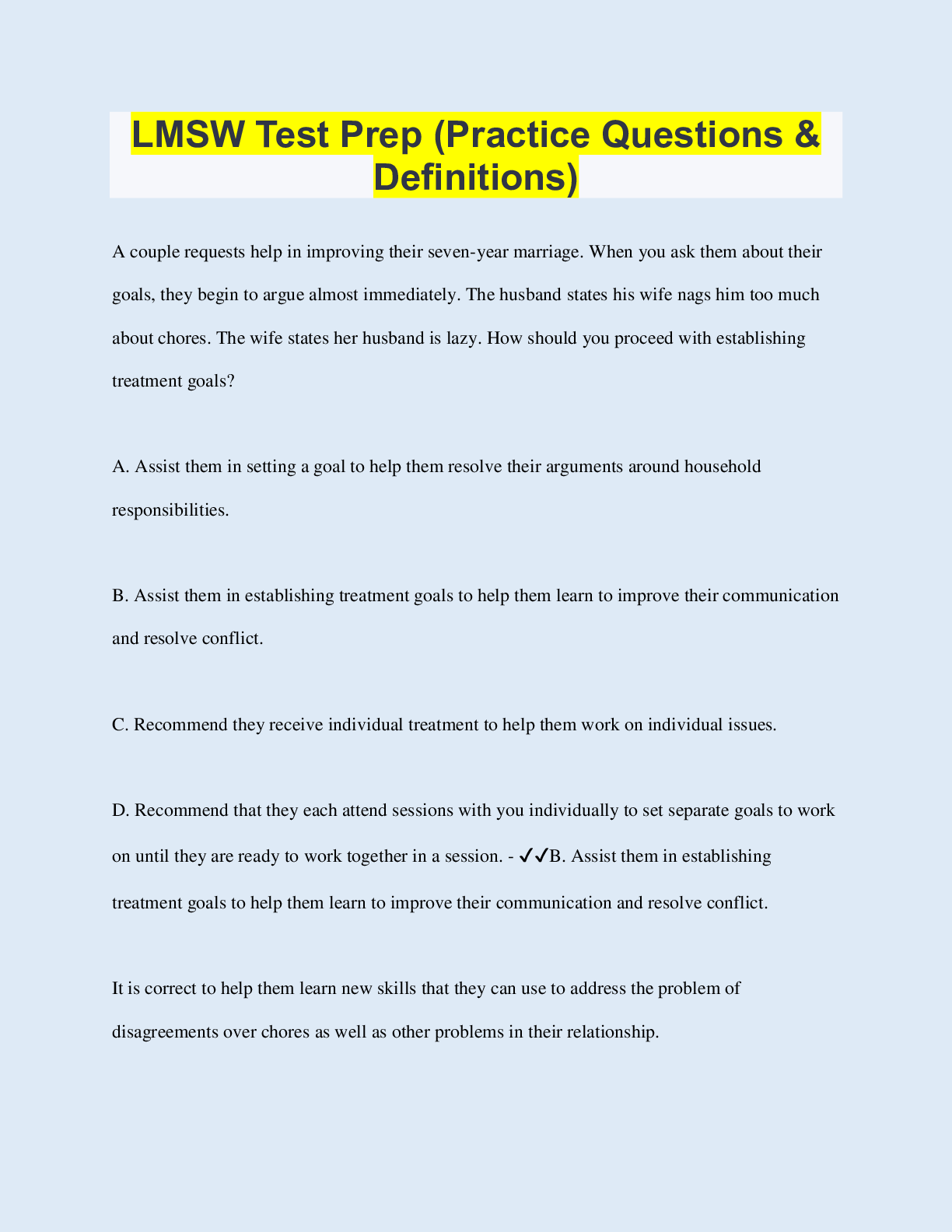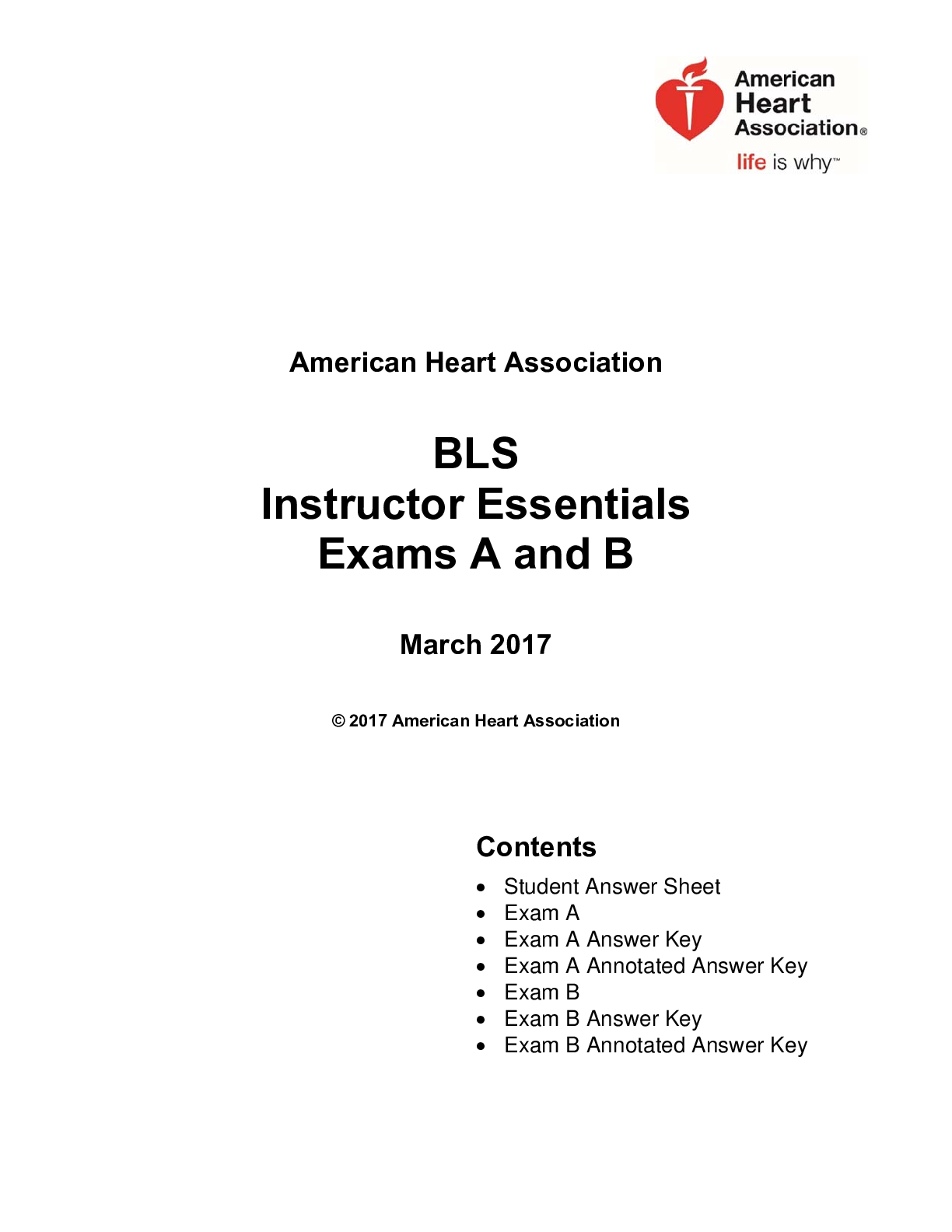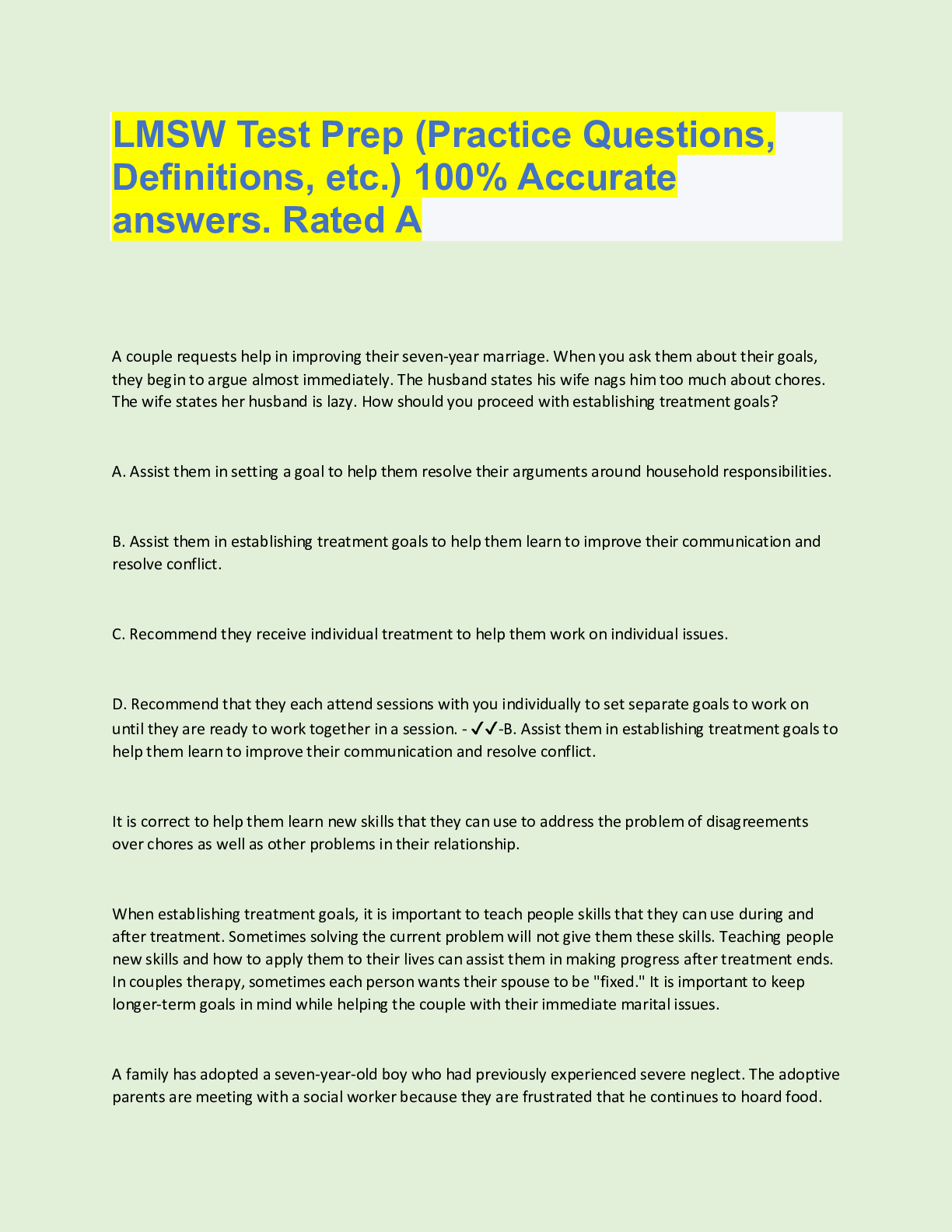Sociology > QUESTIONS & ANSWERS > LMSW Test Prep (Practice Questions & Definitions) (All)
LMSW Test Prep (Practice Questions & Definitions)
Document Content and Description Below
LMSW Test Prep (Practice Questions & Definitions) A couple requests help in improving their seven-year marriage. When you ask them about their goals, they begin to argue almost immediately. The hus... band states his wife nags him too much about chores. The wife states her husband is lazy. How should you proceed with establishing treatment goals? A. Assist them in setting a goal to help them resolve their arguments around household responsibilities. B. Assist them in establishing treatment goals to help them learn to improve their communication and resolve conflict. C. Recommend they receive individual treatment to help them work on individual issues. D. Recommend that they each attend sessions with you individually to set separate goals to work on until they are ready to work together in a session. - ✔✔B. Assist them in establishing treatment goals to help them learn to improve their communication and resolve conflict. It is correct to help them learn new skills that they can use to address the problem of disagreements over chores as well as other problems in their relationship. When establishing treatment goals, it is important to teach people skills that they can use during and after treatment. Sometimes solving the current problem will not give them these skills. Teaching people new skills and how to apply them to their lives can assist them in making progress after treatment ends. In couples therapy, sometimes each person wants their spouse to be "fixed." It is important to keep longer-term goals in mind while helping the couple with their immediate marital issues. A family has adopted a seven-year-old boy who had previously experienced severe neglect. The adoptive parents are meeting with a social worker because they are frustrated that he continues to hoard food. They report that they often find food under his bed and he "steals" extra food to put in his backpack for school. What recommendations should the social worker make? A. They should install locks on the cupboards and the refrigerator so they can better monitor his food intake. B. The parents should take away privileges each time they discover that he is hoarding food. C. They can provide the child with a food basket where he can keep his healthy snacks and they can refill the basket when it is nearing empty. D. The parents should ignore the behavior as it will likely go away on its own once the child realizes that the family has plenty of food. - ✔✔C. They can provide the child with a food basket where he can keep his healthy snacks and they can refill the basket when it is nearing empty. Supporting the child and helping him learn that he will not go without food is important in helping him overcome the neglect he experienced. Children who have experienced neglect sometimes hoard food, even when they are placed in foster or adoptive homes. They have learned this as a survival skill and should not be punished. Instead, they should be given support. Caregivers can help them learn to recognize that their needs will be taken care of. Over time, with helpful reinforcement, these behaviors are likely to diminish. A social worker is meeting with a 50-year-old African-American male who acknowledges he has some suicidal ideation. He was previously diagnosed with major depression and was recently discharged from an inpatient hospitalization. He reports that following his hospitalization he has more energy and feels better. He lives at home with his wife and his adult children have moved out of the home. He works in construction and states that he works about 60 hours per week. What suicide risk factors should the social worker pay close attention to? A. Having adult children who have moved out of the home puts him at a higher risk. B. The long hours that he works put him at a higher risk of suicide. C. His improvement during his hospitalization may actually give him the energy to complete suicide. D. The client is African-American and therefore, statistically, a higher suicide risk. - ✔✔C. His improvement during his hospitalization may actually give him the energy to complete suicide. His improvement in the hospital puts him at a higher risk because he may now have the energy to plan and follow through with suicide. Social workers need to know what sorts of factors may place clients at a higher risk for suicide. This client is at particular risk due to his depression and the improvements he experienced during his hospitalization. When people are feeling better, they sometimes find the energy to plan and follow through with suicide. A 55-year-old male has been meeting with a social worker to address his alcohol dependence. Over the past few weeks he has cut down on his drinking. He arrives at his scheduled appointment sweating. He states he has been vomiting and he has a noticeable tremor in his hands. How should the social worker respond? [Show More]
Last updated: 1 year ago
Preview 1 out of 55 pages

Reviews( 0 )
Document information
Connected school, study & course
About the document
Uploaded On
Jan 28, 2023
Number of pages
55
Written in
Additional information
This document has been written for:
Uploaded
Jan 28, 2023
Downloads
0
Views
83

.png)
.png)
.png)
.png)
.png)
.png)
.png)
.png)
.png)
.png)
.png)

.png)

.png)
.png)















